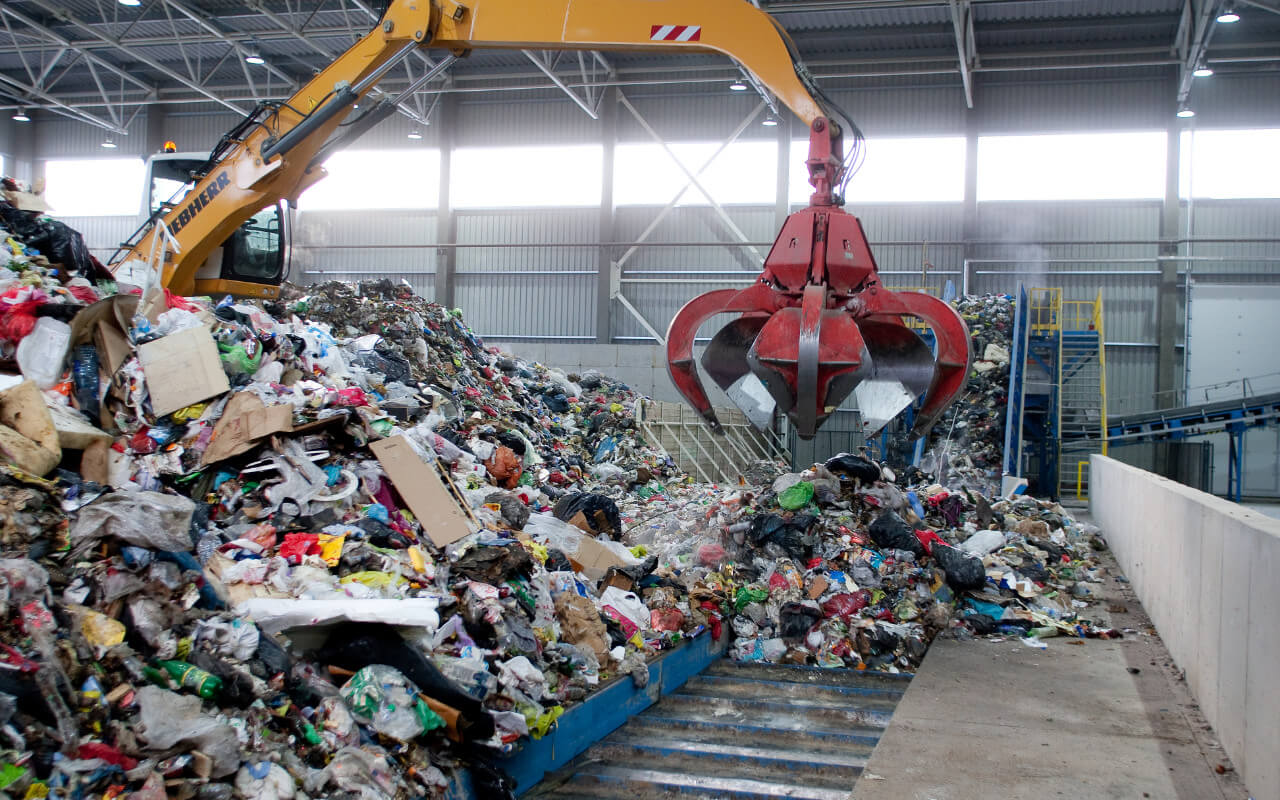Waste Management in Sweden

Sweden has been recognized for its effective waste management practices and efforts to promote a circular economy. In 2022, Swedes generated approximately 395 kilograms of municipal waste per capita, which is lower than the EU average of 513 kilograms per person. This achievement is due to the country's focus on recycling, energy recovery, and public participation. Sweden prioritizes preventing waste generation while using landfilling only as a last resort.
This blog explores Sweden's waste management practices, its ongoing challenges, and opportunities for improvement.
The Current State of Waste Management in Sweden
Sweden has minimized landfill use, with less than 1% of household waste ending in landfills. Most waste is either recycled or converted into heat and electricity through waste-to-energy facilities (WtE). This has been made possible through government policies, public participation, and advancements in waste management technologies.
Here are some key facts about Sweden's waste management practices and statistics:
- Reduction in Household Waste: In 2023, Sweden reduced household waste by 4% compared to the previous year, with the total amount decreasing to 431 kilograms per person.
- Recycling and Energy Recovery: 47% of household waste is recycled, and 52% is converted into energy through WtE plants.
- Waste Sorting: Sweden uses advanced systems for sorting waste at the source to ensure efficient recycling and energy recovery.
Despite these impressive achievements, Sweden continues to refine its waste management systems to meet new challenges and achieve even higher sustainability goals.
The Major Challenges of Waste Management in Sweden
Despite its progress, Sweden faces several challenges in waste management:
Opportunities for Improvement
Sweden’s waste management practices can be enhanced further by focusing on three key areas:
- Building towards the Circular Economy. Expanding markets for secondary materials, promoting sustainable product design, and encouraging industries to adopt circular production methods can improve resource efficiency and reduce waste.
- Upgrading Infrastructure. Investments in new recycling facilities and advanced sorting technologies, such as AI-driven systems, will increase capacity and improve efficiency. Specialized facilities for electronics, textiles, and hazardous materials are also critical.
- Addressing Emerging Waste Streams. Developing infrastructure for new waste types, such as electric vehicle batteries and advanced plastics, will help Sweden manage emerging challenges while creating opportunities for innovation.
How Azortum Would Approach These Challenges
Azortum provides tailored waste management solutions to support Sweden in overcoming these challenges and advancing its sustainability goals.
- Consultation and Design: Azortum designs customized systems to align with facility requirements and environmental objectives, focusing on optimizing operations for efficiency and sustainability.
- Engineering and Construction: We source and construct advanced waste sorting and recycling systems, ensuring compliance with Sweden's environmental standards.
- Installation and Commissioning: Our team handles the installation and testing when commissioning the line, making necessary adjustments to guarantee reliable system performance.
- Retrofits and Upgrades: We provide upgrades to improve existing facilities using technologies like 3D scanning to improve resource recovery and capacity.
- End-of-Life Management: Azortum ensures that equipment at the end of its lifecycle is dismantled responsibly, maximizing reuse and recycling.
- After-Service Support: Comprehensive maintenance and staff training are offered to ensure the longevity and efficiency of the systems.
Conclusion
Sweden's waste management system demonstrates that sustainable practices, public participation, and new technologies can lead to significant environmental improvements. However, the country must address growing waste volumes, plastic pollution, and emerging waste streams to maintain progress. By investing in infrastructure, advancing circular economy practices, and keeping the public engaged, Sweden can continue to lead in sustainable waste management.
Azortum's tailored solutions and expertise align with these objectives, offering practical approaches to help Sweden overcome current challenges and sustain its environmental commitments.
Cited Works
- Swedish Waste Management 2022. Avfall Sverige, https://www.avfallsverige.se/media/lbdg3vcp/svensk_avfallshantering_2022_en.pdf
- Smart City Sweden. Focus Areas: Waste Management, https://smartcitysweden.com/focus-areas/climate-environment/waste-management/
- Sweden.se. Swedish Recycling and Beyond, https://sweden.se/climate/sustainability/swedish-recycling-and-beyond
- Swedish Government. Plastic bag tax to be abolished as of November 1, 2024, https://www.regeringen.se/pressmeddelanden/2023/09/plastpaseskatten-ska-avskaffas/
- Eurostat. Generation of municipal waste per capita, https://ec.europa.eu/eurostat/databrowser/view/cei_pc031/default/table?lang=en
Expert Design & Installation for Your Waste Sorting System!
At Azortum, we specialize in crafting tailored solutions designed for sustainable operation and maximum profitability for your business. Contact us today to share the details of your next project—we’re eager to collaborate!
We have received your information and will be in touch with you shortly. Thanks!
